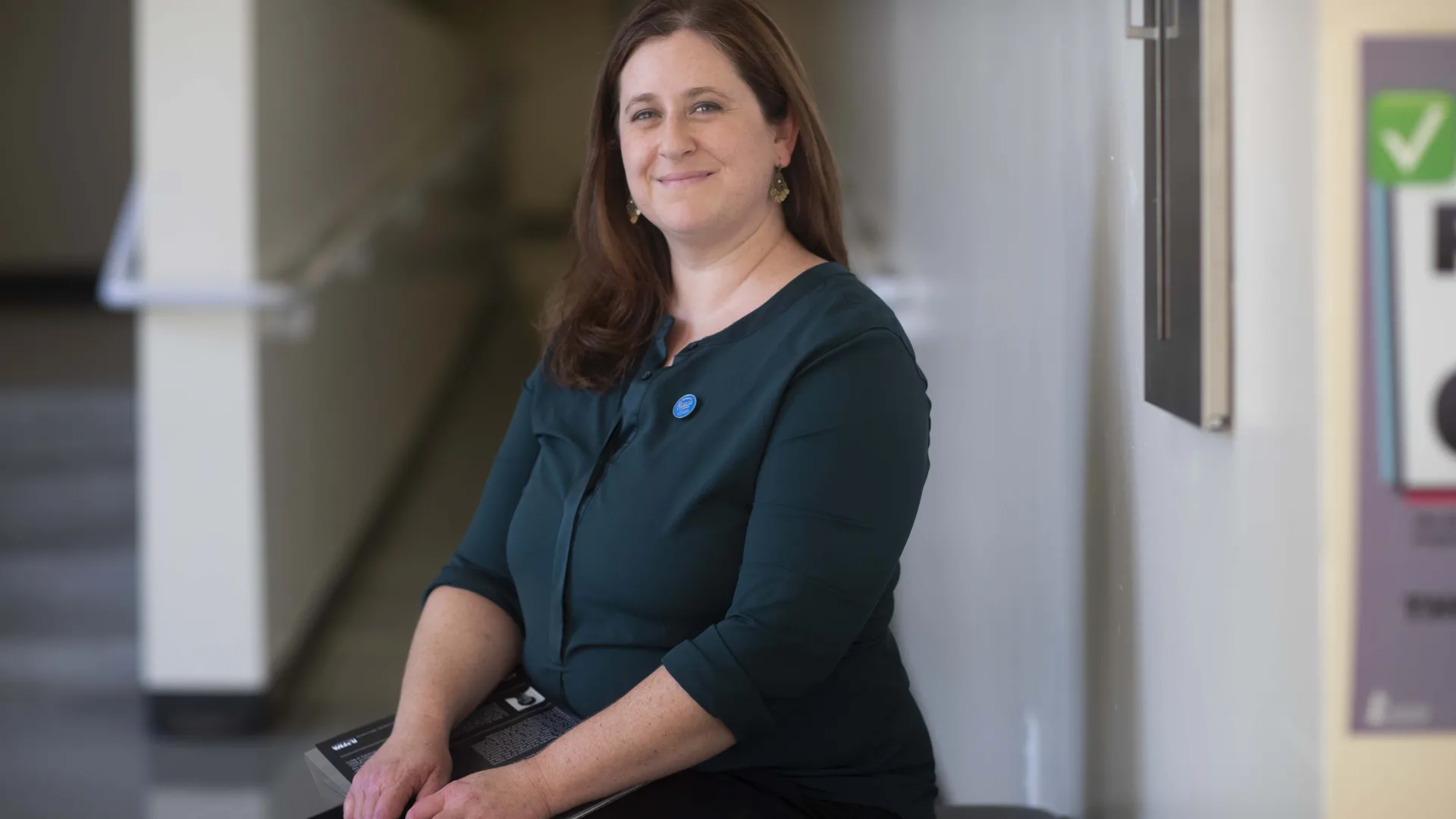Joe Gutierrez | CSUSB Office of Strategic Communication | (951) 236-4522 | joeg@csusb.edu

The National Science Foundation has awarded a $444,414 grant to a Cal State San Bernardino assistant professor of psychology to collaborate with UC Riverside to reduce gender and sexual harassment in STEM departments in UCR’s College of Engineering. The project will then expand to all Colleges of Engineering across the University of California system.
U.S. Rep. Pete Aguilar, D-San Bernardino, who has been a strong proponent of higher education in the inland region, said the grant shows CSUSB’s determination to increase both research in the region and make STEM (science, technology, engineering and mathematics) more available to women.
“I’ve been proud to support funding to empower scientific research right here in the Inland Empire. This grant makes clear that CSUSB is a national leader in education, and I’m excited that this project to make STEM disciplines more accessible and inclusive for women is being led by a member of our community,” Aguilar said. “I’ll continue to support local research funding and programs to combat sexual harassment in the workplace.”
Brittany Bloodhart, an assistant professor of psychology, will serve as the CSUSB principal investigator of the NSF grant and lead the social science component of the research project, including design, implementation, and testing of the effectiveness of an intervention program.
Bloodhart will oversee the experimental design of the program; collect and analyze data on the effectiveness of the training, including individual and institutional-level change; and produce scientific publications and conference presentations on the psychological findings of the study.
“What I’m excited about is the opportunity to conduct scientific research that contributes to the literature on sexual and gender-based harassment, and at the same time, apply this knowledge to interventions that can make a real impact for women and other underrepresented groups in STEM,” Bloodhart said. “Although it’s important to have interventions that increase women’s interest and representation in STEM, we also need to make sure they don’t face barriers and hostile environments when they get there. That’s what this project is ultimately about.”
The project stems from Bloodhart’s previous NSF-INCLUDES grant, “Leveraging Field-Campaign Networks for Collaborative Change,” which integrated social science research and bystander intervention training to address sexual harassment in academic field work.
Kelley Barsanti, an assistant professor of chemical and environmental engineering at UC Riverside, approached the INCLUDES team about adopting a similar model to address sexual and gender-based harassment in university departments, starting with UC Colleges of Engineering. She said Bloodhart contributes experience in developing and applying evidence-based approaches to mitigate exclusionary behaviors in STEM.
Bloodhart “will play a major role in adapting NFS ADVANCEGeo materials and methods for application within the UC colleges of engineering, and implementing bystander intervention training and expansion of a train-the-trainers model,” Barsanti said. “She will lead efforts to document the experience of participants and resistance to change, particularly in the context of evaluating what elements of our program are producing measurable positive change.”
“Bloodhart’s expertise in application of social science methods to test the efficacy of training in affecting individual and systemic change is critical to the evaluation and success of our project,” Barsanti said.
The UCR Collaborative NSF ADVANCE Partnership project (COE ADVANCE) aims at developing an organizational culture and climate that better promote equity and inclusion for engineering faculty. This will be done by building awareness and understanding of exclusionary behaviors and enabling effective intervention through bystander training.
The project is designed to affect individual and organizational change in Colleges of Engineering across the University of California system, starting in the UCR Bourns College of Engineering and expanding to all other UC colleges of engineering, through a partnership with the UC Engineering Deans’ Council.
The project objectives include:
- Increase individual and organizational awareness and understanding of the culture and climate within COEs across the UC system, particularly as they affect women and in the context of intersectionality;
- Develop organizational leaders, allies and collaborators from the departments and colleges to provide bystander intervention training for all faculty and to model behaviors that promote equity and inclusion;
- Empower faculty to apply bystander intervention strategies that promote positive organizational culture and climate, encourage equitable attitudes, and facilitate systemic change; and
- Explain the experiences of underrepresented faculty and resistance to change among overrepresented faculty.
Bloodhart’s research at CSUSB addresses individual reasons for supporting or opposing social justice issues, primarily related to gender and diversity, as well as environmental issues.
Bringing a Ph.D. in social psychology and women’s studies to CSUSB has allowed Bloodhart to seek out interdisciplinary research projects with students and faculty that address a variety of social issues, and an emphasis in environmental justice has allowed her to merge these interests with collaborators across a range of STEM fields.
Her previous positions include postdoctoral fellowships at the Center for Climate Change Communication (George Mason University) and Colorado State University’s Department of Atmospheric Science, where she also served as a Sustainability Leadership Fellow through Colorado State’s School of Global Environmental Sustainability. Bloodhart maintains an active research lab, which involves graduate and undergraduate students in research on these topics. Funding from the NSF grant will support a graduate student researcher for 2.5 years.